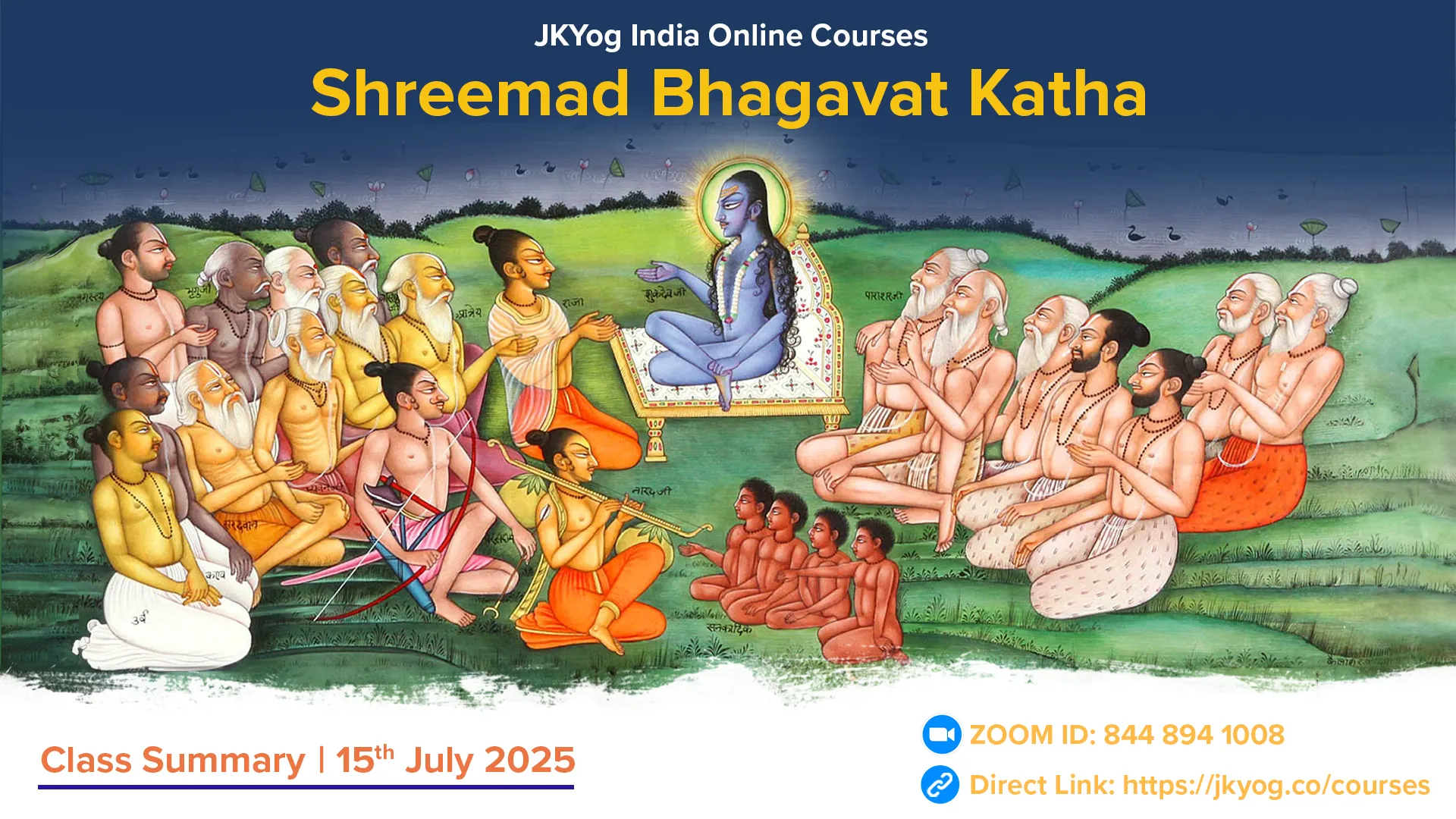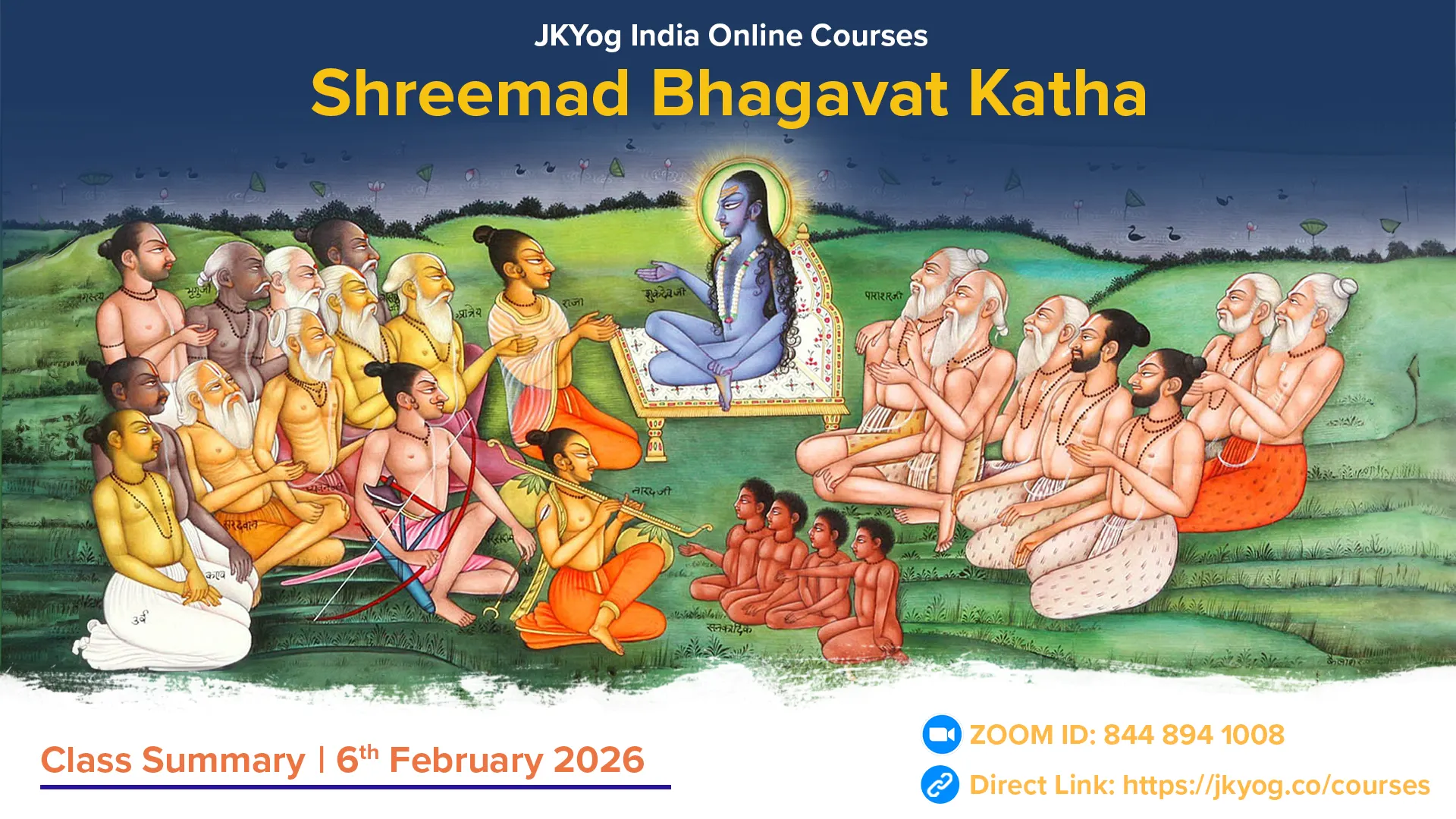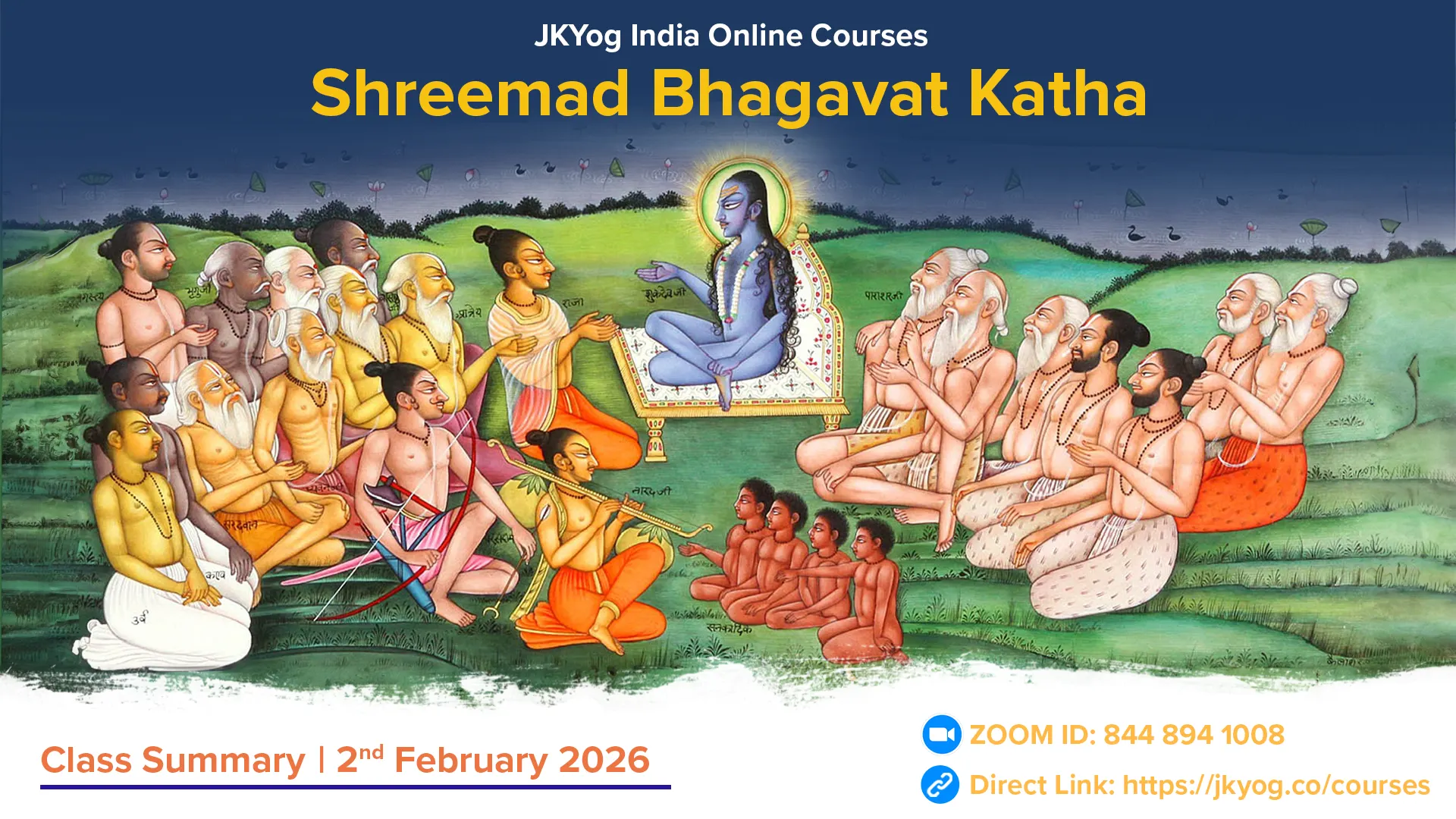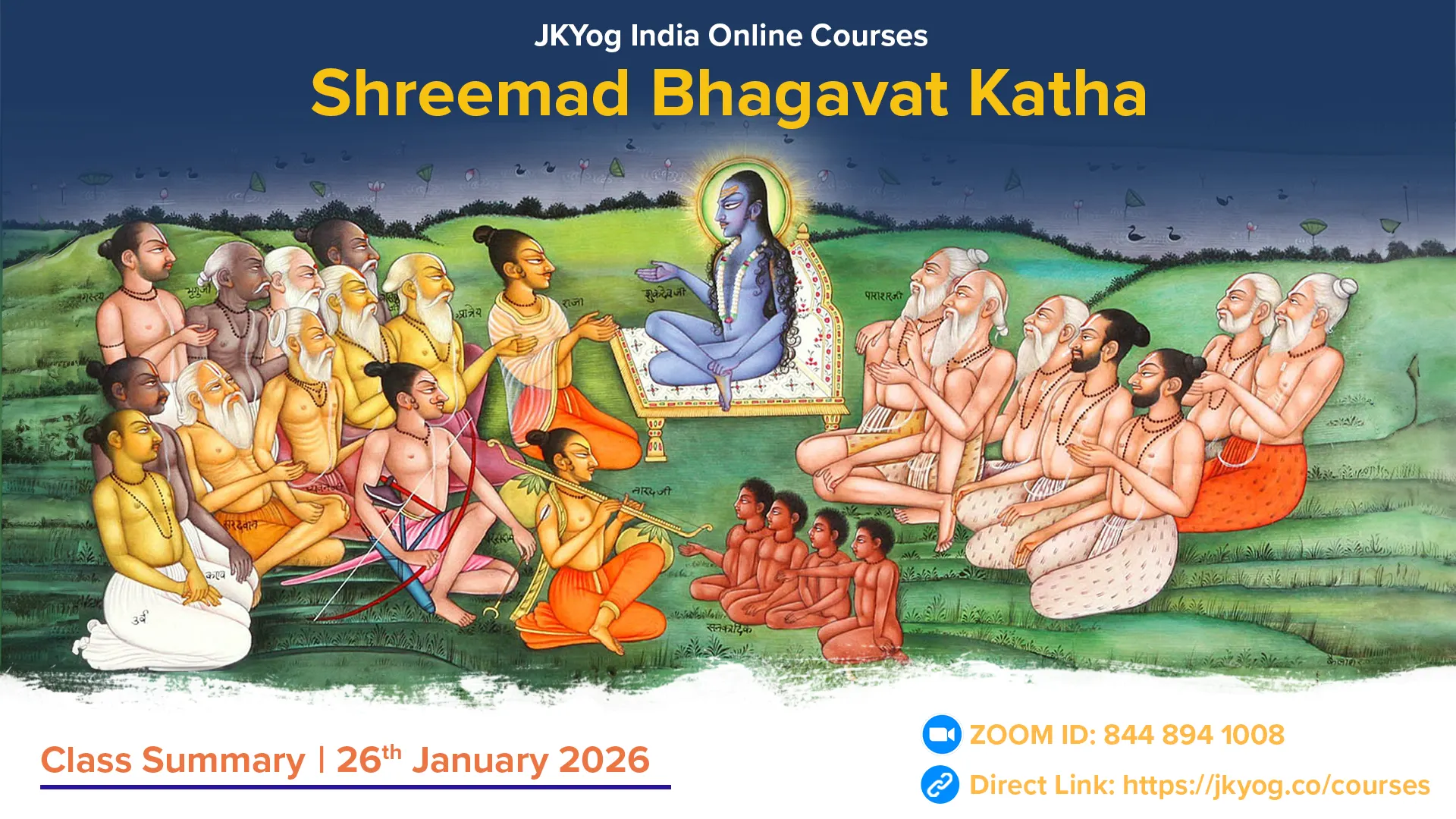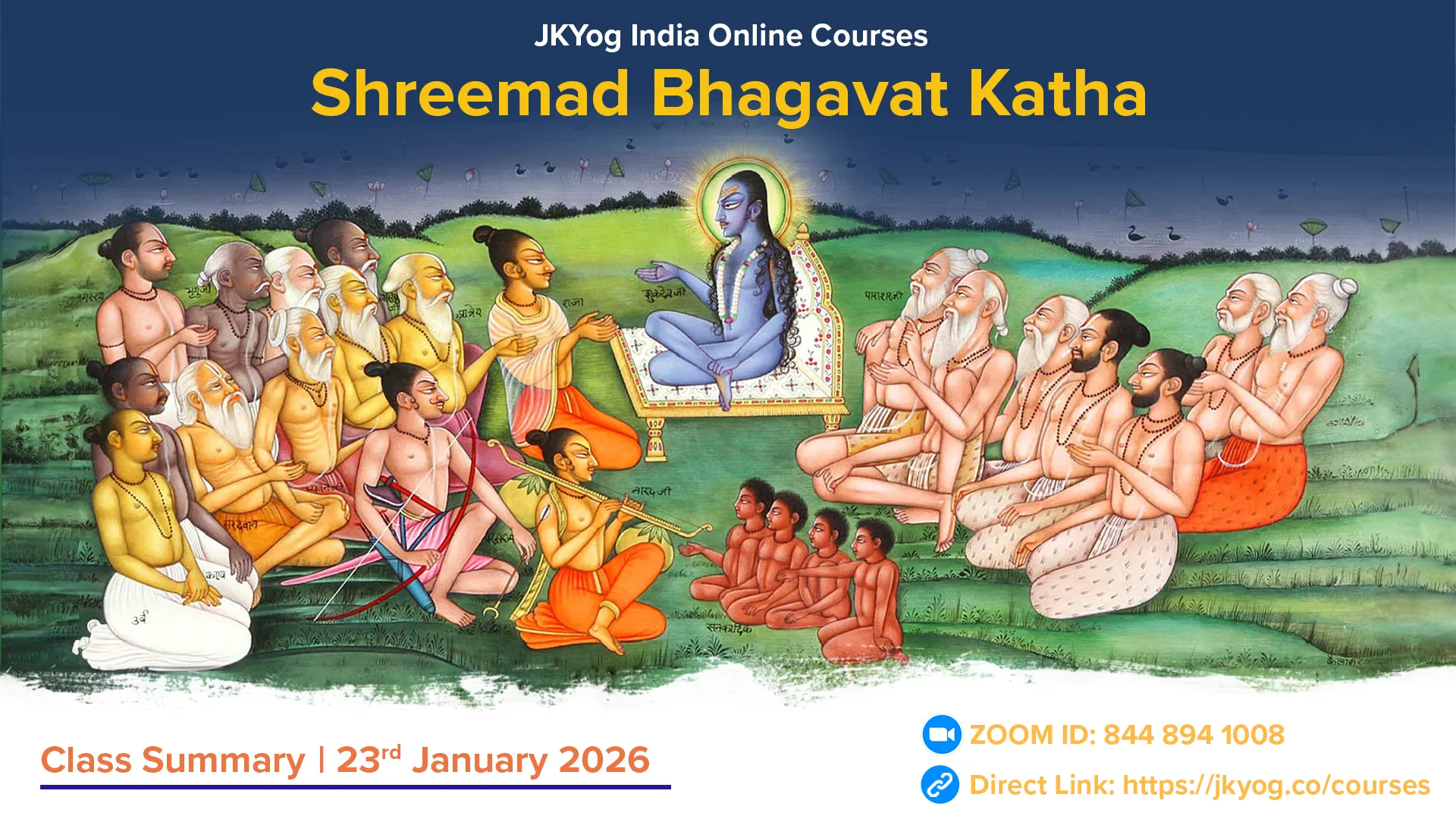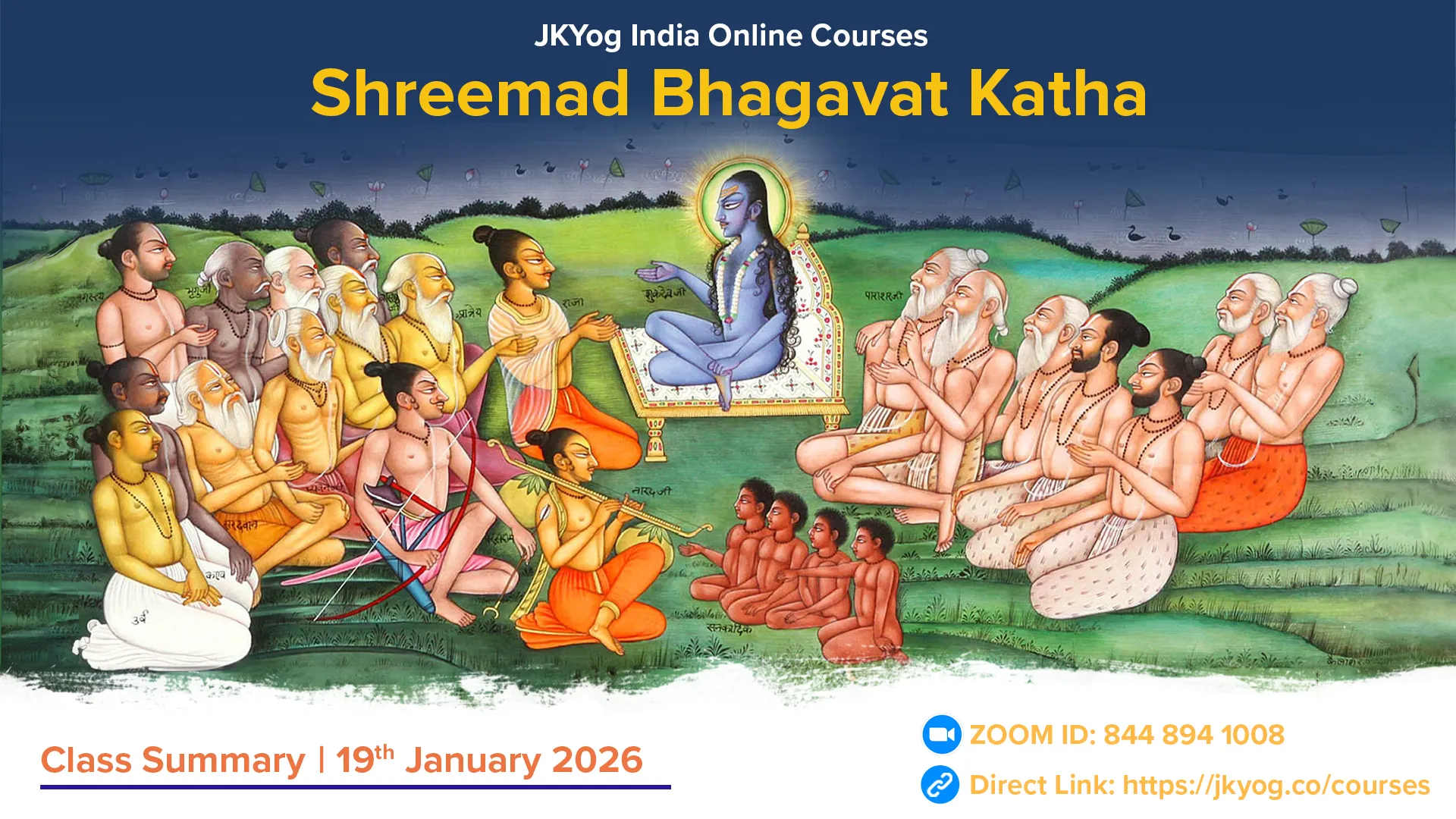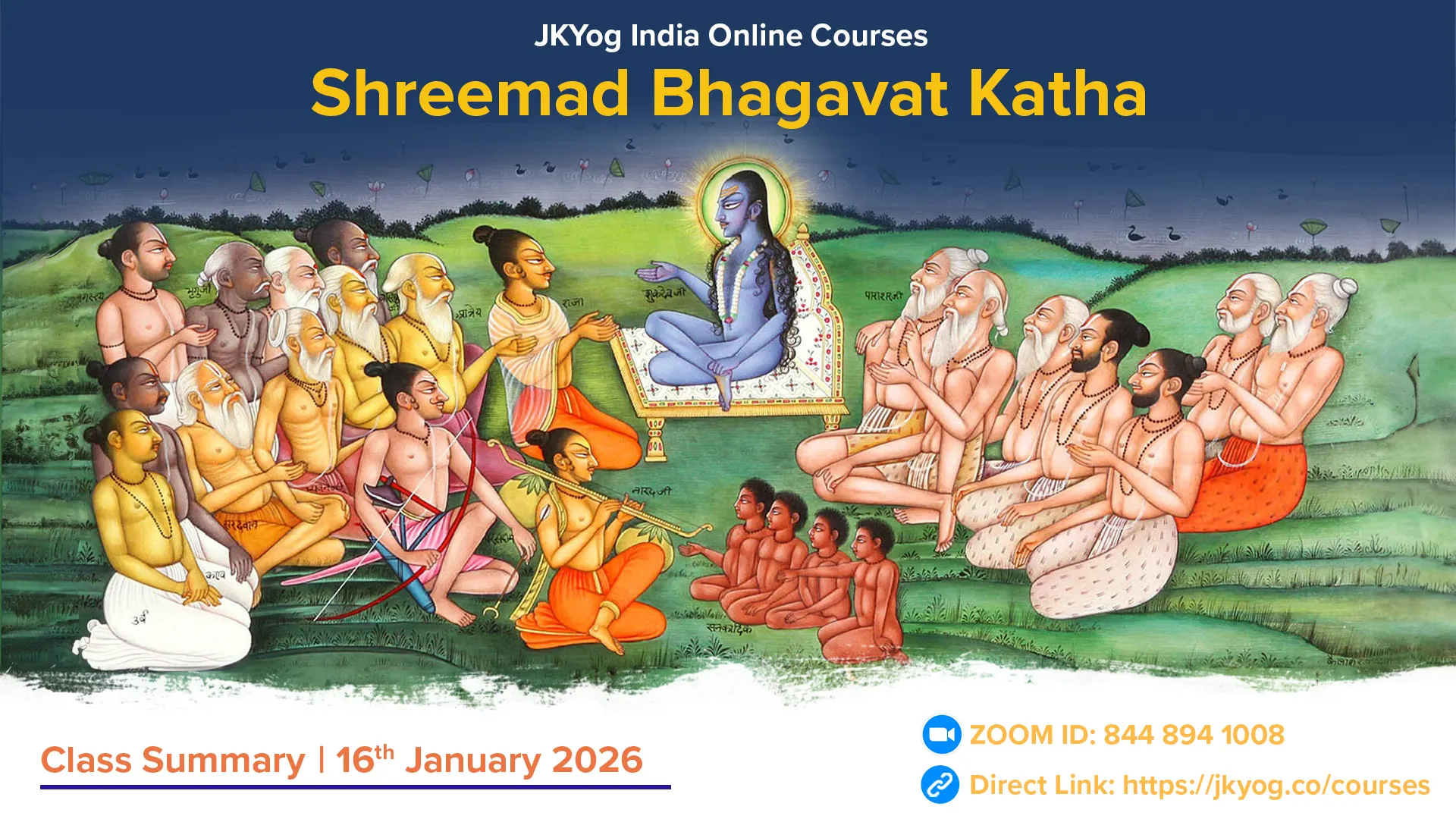Shreemad Bhagavat Mahapuran- Canto: 8, Chapters: 10-12
The Danavs and Daityas had churned the great Ocean of Milk, the Kshir Sagar. They toiled with immense effort, hoping to claim the nectar of immortality, amrit, for themselves. But because their hearts were turned away from God, even after all their labour, the nectar slipped from their grasp. Shree Hari, taking compassion on the Devas, extracted the amrit, and without delay, gave it to them to drink. Seated upon His mighty mount Garud, He departed.
When the Daityas saw the gods triumph and drink the amrit, fury blazed within them. At once, they lifted their weapons and charged at the Devas, determined to seize victory by force. But the gods, now empowered by amrit and protected by God’s grace, stood firm. They armed themselves and prepared to meet the onslaught.
Soon, on the shores of the milky ocean, an epic battle erupted- a ‘Deva-Asura Sangram’ unlike any before. Both sides were consumed by wrath. Swords clashed, arrows rained down, and the sky filled with the sounds of conches, war drums, trumpets, and damroos. Elephants trumpeted and horses neighed as chariots thundered across the field. Warriors on foot cried out their battle cries, and the noise rose to a deafening roar.
Charioteer fought charioteer, horseman met horseman in deadly combat. Some warriors fought mounted on camels, elephants, donkeys, blue bulls, tigers, and lions. Others soared on vultures, falcons, and cranes. Some even rode mice, jackals, chameleons, and hares. From the land, water, and sky, the demons poured into the battle on every imaginable creature.
The battlefield glowed with colour and splendour. Bright banners waved, jewel-studded weapons flashed, peacock feathers and royal parasols fluttered in the wind. It was as though two vast oceans were colliding in waves of fury. Amid this chaos stood Bali, the king of the Daityas and son of Virochan. He mounted a wondrous aerial chariot named Vaihāyas, crafted by the architect-Daityas Maya. This chariot could move wherever its rider wished; sometimes visible, sometimes hidden from view.
The commanders and warriors of Bali gathered all around him on their flying chariots. They, too, had helped churn the ocean but had been denied the nectar. These demons had defeated the gods many times before, and their confidence soared. With thunderous roars and the blaring of terrible conches, they hurled their challenge.
Seeing their arrogance, Indra, king of the gods, felt his anger rise. He mounted Airavat, the celestial elephant whose temples streamed with perfumed ichor. Upon Airavat’s back, Indra shone like the rising sun crowning a mountain peak.
Around him stood the other gods- Vayu, Agni, Varun, each with their own mighty vehicles and banners.
The two armies faced each other, ready to clash. Warriors called out to their chosen foes, forming pairs for single combat. Some shouted names in challenge, others hurled fierce taunts meant to break their enemies’ spirits.
The mighty warriors on both sides chose their foes and charged into combat.
King Bali himself engaged Indra in a fierce duel. Swami Kartikeya, commander of the Devtas, met the powerful Tarakasur in single combat.
Varun, god of the oceans, fought with the demon Heti, while Mitra faced the fearsome Praheti.
Yamraj, lord of death, locked weapons with Kalanabh. Vishwakarma, the divine architect, clashed with the master demon Maya. Shambarasur fought Tvashta, the artisan of the gods. Surya, the sun god, battled Virochan with blazing fury.
Elsewhere, Namuchi took on Aparajit, while the Ashwini Kumars, the twin physicians of heaven, fought Vrishparva.
Surya Dev confronted all hundred sons of Bali at once, casting his radiance across the battlefield.
High above, Rahu grappled with Chandra, the moon god, while Puloma struck at Vayu, the wind god.
Bhadrakali Devi, fierce and unstoppable, descended upon the demons Shumbh and Nishumbh, tearing into their ranks.
Mahendra Indra continued his struggle with Jambhasur, while Agni Dev battled the bull-headed Mahishasur. Marichi confronted the monstrous brothers Vatapi and Ilval.
Durmarsha fought Kamdev, god of love himself, in a strange and terrible contest. Utkal fought against the Matrikas. Shukracharya, the guru of the demons, clashed with Brihaspati, the guru of the gods. Narakasur faced off with Shani Dev, the stern planet-god of karma and justice.
In other corners of the field, the Maruts fought Nivatkavach, the Vasus took on the Kaleyas, the Vishvedevas opposed the Paulomas, and the Rudras, fierce as stormclouds, struck at the Krodhavash demons.
Elephants and horses fell in heaps. Chariots splintered. Foot soldiers were struck down by countless weapons. Severed limbs and shattered armour littered the battlefield. Thick clouds of dust darkened the sky, and soon the ground was drenched in rivers of blood.
At the heart of this chaos, King Bali unleashed a volley of arrows at Indra and his allies. But Indra, quick as lightning, cut them down in midair. Bali seized his spear and other weapons, but Indra destroyed them all one by one. Enraged, Bali suddenly vanished from sight, weaving illusions with his demonic powers.
In an instant, he conjured a mountain suspended in the sky, from which flaming trees and boulders came crashing down. Poisonous creatures, lions, tigers, and rakshasas appeared out of thin air. Storm winds howled. Fire rained from the heavens. The ocean itself surged over its shores as if the end of the world had come.
Fear swept through the army of the gods. Indra and all the devas closed their eyes and called upon God in desperation.
In that very moment, Bhagwan Vishnu appeared, seated upon His mighty Garud. The instant the gods beheld Him, all the demons’ illusions vanished—just as dreams dissolve when one awakens.
Furious, the demon Kalanemi hurled his trident straight at Bhagwan Vishnu. But He caught it effortlessly and destroyed Kalanemi and his mount in a single stroke.
Mali and Sumali charged forward, but Shree Hari’s discus flashed out and cut off their heads. Malivan rushed in wielding his mace, but he too was struck down by the Sudarshan Chakra.
By God’s grace, all fear vanished from the hearts of the devas. A fresh surge of courage rose within them. Indra, Vayu, and the other gods turned their full strength against the demons who had wounded them before.
Indra’s eyes blazed with fury. Raising his thunderbolt, he advanced upon Bali. The sky filled with cries of terror, but Bali stood unshaken on the battlefield.
With scorn in his voice, Indra called out,
“You think to defeat us with your deceitful tricks? Fool! We are the masters of maya itself. I will destroy you with my thunderbolt!”
“You think to defeat us with your deceitful tricks? Fool! We are the masters of maya itself. I will destroy you with my thunderbolt!”
Bali answered calmly,
“Indra, those who are bound by karma and time must always face victory or defeat, fame or disgrace, life or death. The wise do not grow arrogant in victory nor despair in defeat.”
“Indra, those who are bound by karma and time must always face victory or defeat, fame or disgrace, life or death. The wise do not grow arrogant in victory nor despair in defeat.”
Hearing these words, Indra felt a twinge of embarrassment. But Bali, still resolute, nocked many arrows to his bow and hurled them at Indra, mocking him again. Indra’s anger grew even hotter. He hurled the infallible thunderbolt straight at Bali. With a force like a falling mountain, the blow struck Bali and smashed him to the ground along with his aerial chariot.
At once, one of Bali’s allies, mounted on a lion, charged at Indra. Swinging his mace, he struck Indra and his elephant Airavat with all his might. Airavat staggered, grievously wounded, and then collapsed to his knees, senseless.
But Matali, Indra’s charioteer, was swift. He drove up with a chariot yoked to a thousand white horses. Indra left Airavat and climbed aboard. Seeing this, the demon Jambha hurled his trident at Matali. Brave Matali endured the blow without flinching. Then Indra, raging, raised his thunderbolt again and struck off Jambha’s head.
When news of Jambha’s death reached his brothers—Namuchi, Bala, and Paka—they stormed into the fray. Their voices dripped with scorn as they hurled insults at Indra and rained arrows upon him.
Bala discharged a thousand arrows in a single volley, piercing all the thousand horses of Indra’s chariot. Paka fired a hundred arrows at Matali and another hundred into the chariot itself, splintering its parts. The devas marvelled at the demons’ deadly skill.
Namuchi then took up fifteen golden-feathered arrows and shot them all at Indra, roaring in triumph. So dense was the demons’ arrow storm that Indra, his chariot, and Matali disappeared beneath it, like the sun swallowed by dark monsoon clouds.
When the gods could no longer see Indra, panic seized them. Leaderless, they wept in despair. It was as if merchants adrift in a broken ship were watching their last hope sink beneath the waves.
Then, after a long moment, Indra emerged from the wall of arrows with his chariot, horses, and charioteer unharmed. His radiance blazed so brightly that the battlefield lit up on all sides.
Surveying the field, Indra saw how the demons had crushed much of the celestial army. His fury unbounded, he lifted the thunderbolt high and struck off the heads of Bala and Paka. Namuchi, struck with grief and rage, seized a massive trident, gleaming with gold. Roaring, he rushed upon Indra and flung the weapon with all his strength.
But Indra shattered the trident mid-air with a volley of arrows. Then he raised his thunderbolt and brought it down upon Namuchi’s neck.
Yet to Indra’s amazement, the thunderbolt did not leave so much as a scratch. Indra drew back, bewildered.
“What is this?” he thought. “This same thunderbolt has cut the wings from flying mountains and slain mighty Vritra. It has destroyed countless demons. And now, against this wretch, it is powerless!”
His mind sank into doubt and dread.
Just then, a divine voice echoed from the sky:
“Namuchi cannot be slain by anything dry or wet.”
At once, Indra realised the answer. He gathered the sea-foam, neither fully wet nor dry, and with it struck off Namuchi’s head.
Around him, Vayu, Agni, Varuna, and the other gods defeated their enemies one by one.
Brahma observed this slaughter from afar and grew concerned. He dispatched Narad to the battlefield.
Arriving swiftly, Narad raised his voice:
“Enough. Let this war end.”
“Enough. Let this war end.”
Hearing Narad’s words, the gods calmed their wrath. They laid down their weapons and departed for their celestial realms. Their followers sang hymns of their victory.
Meanwhile, the demons who had survived carried Bali’s unconscious body to the western mountains. There, Shukracharya, master of the Sanjeevani science, revived those whose bodies had not been completely destroyed. Bali, too, returned to awareness. Because he understood that victory and defeat, life and death, all arise from time and destiny, he felt no sorrow over his fall.
Vishnu’s Mohini Avatar That Enchanted Even Shiva
When Bhagwan Shankar heard that Vishnu had taken the form of a woman (Mohini Avatar) to enchant the demons and give the nectar of immortality to the gods, He felt a surge of curiosity. Accompanied by Devi Sati, He set out to behold that marvellous form. Bhagwan Vishnu welcomed Gauri-Shankar with great affection and honour.
Then Shankarji began to describe Vishnu’s boundless glory:
“You alone are the supreme cause of creation, preservation, and dissolution. You are Brahman, the Self of all beings. Beyond nature and spirit, You are infinite and indescribable.”
“You alone are the supreme cause of creation, preservation, and dissolution. You are Brahman, the Self of all beings. Beyond nature and spirit, You are infinite and indescribable.”
With folded hands, He continued,
“O Lord, whenever You assume countless incarnations, accepting the qualities of the world for the sake of divine play, I have always yearned to behold them. Today, I wish to see that special form You took as a woman, the form with which You enchanted the demons and gave the gods the nectar. My heart is full of wonder to see it.”
“O Lord, whenever You assume countless incarnations, accepting the qualities of the world for the sake of divine play, I have always yearned to behold them. Today, I wish to see that special form You took as a woman, the form with which You enchanted the demons and gave the gods the nectar. My heart is full of wonder to see it.”
Hearing this, Bhagwan Vishnu smiled gravely.
“Shankarji,” He replied, “at that time, the pot of nectar had fallen into the hands of the demons. To distract their minds with a new fascination and to accomplish the gods’ purpose, I assumed that female form. You desire to see it, so I shall show you. But remember, that form is honoured only by men ruled by desire, for it awakens passions in the heart.”
With these words, Bhagwan Vishnu disappeared on the spot.
Shankar and Devi Sati remained seated, their eyes searching in every direction. Suddenly, the entire scene changed. Before them stretched an enchanting garden. Amid its blossoms, an exquisitely beautiful young woman, Mohini, was playing ball. Her graceful movements, her shining limbs, her playful glances, and her delicate expressions captivated Shankarji’s mind in an instant.
With a shy smile, she looked toward Him, and in that moment, even Shiva’s supreme detachment dissolved. His discernment slipped away, and a tide of longing swept over Him. Overcome by desire, Shankarji rose and began to follow her.
Mohini ran lightly through the groves, hiding behind trees, laughing softly as she glanced back. Like a maddened elephant, Shiva pursued her wherever she darted.
At last, He caught her in His arms. But she was only maya—an illusion. The instant He touched her, she slipped through His grasp and sped away.
Shankarji ran after her across rivers and ponds, through forests and sages’ hermitages. In that wild chase, His seed fell to the earth, and wherever it touched the ground, mines of gold and silver sprang forth.
When at last this release came, Shankarji’s mind returned to clarity.
He stopped, understanding at once:
“This was none other than the maya of Bhagwan Vishnu.”
Just then, Vishnu Himself appeared before Him, smiling.
“My maya is infinite,” He said gently. “It stirs desire in the hearts of all. No one can escape it. But now it will never delude you again.”
Shankarji stood, humbled by this revelation. He realised fully how astonishing and limitless Vishnu’s maya truly is.
Satisfied, He returned to Mount Kailash. There, He turned to Devi Sati and spoke:
“Devi, did you see with your own eyes the wondrous maya of the Supreme Being, Bhagwan Vishnu? Although I am the master of all arts and wisdoms, though I am ever free and independent, still, I was made helpless by that illusion. What need is there to speak of ordinary creatures? Bound as they are by nature, how can they ever hope to resist it?
“Devi, did you see with your own eyes the wondrous maya of the Supreme Being, Bhagwan Vishnu? Although I am the master of all arts and wisdoms, though I am ever free and independent, still, I was made helpless by that illusion. What need is there to speak of ordinary creatures? Bound as they are by nature, how can they ever hope to resist it?
Long ago, when I rose from my thousand-year meditation, you had asked Me Whom I worship. Know now—He is the eternal Supreme Person. Neither time can limit Him nor the Vedas describe Him. His true nature is endless and beyond all words.”
Summary: JKYog India Online Class- Shreemad Bhagavat Katha [Hindi]- 15.07.2025

